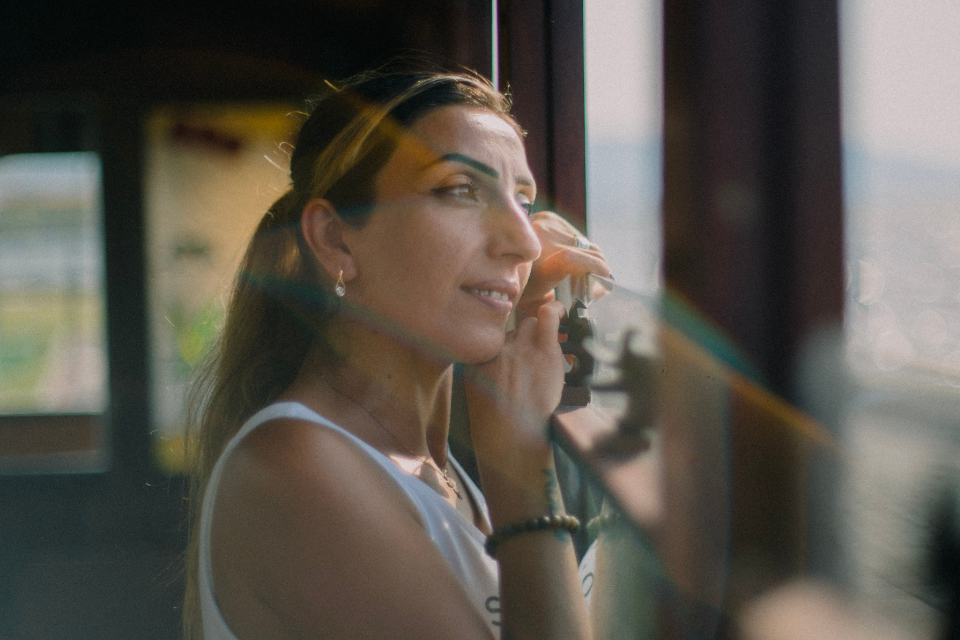In the words of: “It takes time for a refugee to understand the world outside their home, but it is possible to feel safe and have hope for the future”
Emel Huseyin, 33, fled the war in Syria with her mother and sister in 2014 and moved to Izmir in western Turkey. She overcame severe psychological problems with the help of others and now wants to support those with similar needs. After learning Turkish and getting her life together, she participated in MUDEM Refugee Centre’s (MUDEM-RSC) vocational training. Here she found the strength to help other refugee women through the Home to Home Solidarity Programme, which is funded by the Government of Japan and implemented by UN Women in partnership with MUDEM-RSC.
Date:

![]()
Life has not been easy since we fled from Syria. I was working as a nurse but it was impossible to practice my job here in Turkey, due to my lack of Turkish language and certification. Because of that, I firstly focused on learning Turkish and after seven years I can now speak the language very well. Thanks to my community here, I learned about MUDEM-RSC in 2018 and started to benefit from their skills development trainings and counselling services provided for refugee and local women. The centre was a space where I could meet other refugee and Turkish women facing similar situations. Soon I found myself a part of the Havva Women’s Committee producing textile products and selling them. It has been a relief to have income, which was possible thanks to the training I undertook. I want skills development trainings to be diversified and become available for more women, particularly refugee women. Ideally, we should be standing on our own feet but this is only possible through having skills that can help women find work. Being a woman in a society like ours is difficult, but being a refugee woman is even tougher. In my case, recovering from the impact of what I went through during the war and resettlement was an obligation, not an option, because at some point I had to continue my life here. The critical aspect of my empowerment story is the vocational training and counselling support I received via MUDEM-RSC. It takes time for a refugee to understand the world outside their home, but it is possible to feel safe and have hope for the future when women can gather, have a conversation and produce together. Places like MUDEM-RSC provide a safe space for women and trainings, such as in women’s leadership, help overcome negative feelings like shyness and fear. Currently, I am being trained as a community leader as part of the Home to Home Solidarity Programme to support women in need during COVID-19. Regardless of a woman’s potential, one needs a purpose. Through the training to become a community leader, I learned how to express myself clearly, use my strengths and position myself to be able to influence others. This creates change in your life because you realize your inner self and potential. I hope to successfully finish the training and, as a community leader, to support other women.
My life changed when I started saying, ‘I can do it’. I think women should have more faith in themselves, learn skills, learn languages and meet people. Above all else, women should dream and the rest will follow.”